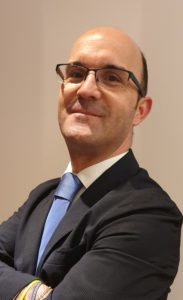Black Swans – From the Exception to the Rule
By Ricardo Caldeira
We live in a world that increasingly, paradoxically as it may seem, we do not fully understand. This is the basic premise of the Black Swan Theory. The phenomena dubbed Black Swans are those that cumulatively gather the following 3 characteristics:
- Rare, unlikely, improbable, and atypical.
- Highly impactful, consequences of enormous magnitude.
- Downstream, after they happen, “easily” explainable and even predictable (but in fact upstream, and generally speaking, with a very low probability of anticipation).
Black Swans are events characterized by an inversely proportional relationship between their probability (very low or remote) and their impact (always tremendous). They are rare, but they exist and I referred to them in what I consider to be their essence, and its urgency.
Six months ago, I wrote about the Black Swans of Leadership. These are different, humble, communicative, empathetic, and emotional leaders. It is strange to refer to these leaders as different, but the truth is that they are. They should be the rule, but instead they are the exception. We all feel their need, but only a few manage to be. I often say that there is still a huge gap between the theory and the practice.
The Covid pandemic has sharpened the urgency of its performance, its existence, and although extremely negative, the framework it generated brought a tremendous opportunity for the emergence of more of these leaders. This pandemic, like any other terrible event, also brings good opportunities. It was seen by many as an opportunity to change the Leadership paradigm. There was hope. However, the reality seems to be showing us that this has not yet ignited the fuse for change.
At a time when employees are searching, and in need of leadership, support, confidence, and genuine concern — beyond the professional aspect — and above all, good communication and a lot of empathy, leaders have remained distant. The pandemic turned out to be an ally in this way of acting. Unfortunately, many times leaders “being” are not, and despite their presence, they are completely absent.
But let us frame this question of the Black Swans a little bit better.
The term Black Swan was allegedly created in 1711 by David Hume, an Edinburgh philosopher and one of the pillars of the triad of British empiricism, and its history will go back to that time.
Hume was one of the people who paved the way for the application of the experimental method to mental phenomena. His thoughts and studies on what came to be called “The Problem of Induction” resulted in the terminology of the Black Swan, drawing general conclusions from specific observations. The inductive methodology assumed that one could move from a series of singular utterances to a universal utterance. According to this line of thought, science then begins with observation. This, in turn, provides a secure basis on which scientific knowledge can be built, and is obtained from induction observation propositions.
David Hume’s problem of induction is to distinguish the good from the bad inductive habits, considering the absence of any objective distinction between them. Therefore, induction is no more than an uncertain inference or deduction and can only lead to a conclusion with some degree of certainty.
In his “Treatise on Human Nature,” in which Hume sought to examine the psychological basis of human nature, he concluded that human behavior is more governed by passion than by reason, arguing against rationalism, to which empiricism vehemently opposed. He insisted that probabilistic connections depend on habits of the mind, not on our experience of the world. Hume suggested two justifications for this induction principle, which underlies the widespread belief that the past is a reliable guide to the future, but ultimately rejected both.
The first justification was based on the definition that, mainly for reasons of logical necessity, the future must be similar to the past. However, Hume notes that we can conceive of an erratic and chaotic world where the future has nothing to do with the past or a world like ours so far, but in which from a certain point on, things change completely.
The second justification appeals only to the past security of induction: it has always worked like this, so it is likely to continue to work. The reason for rejecting this justification is its limitation by using circular reasoning — induction requires itself to take effect. Therefore, we are not rationally justified to rely on inductive reasoning, and we cannot say that the future will be like the past. The fact that we must assume constancy to be able to affirm that the event will happen again shows that there is no reason to think that it will be so. We are just accustomed to thinking that events will repeat themselves due to having experienced its repetition in the past. Thus, the transition from particular observations to a universal utterance cannot be rationally justified only by its number.
We make predictions based on our previous experience because we have a disposition, the habit to do so, not because it is possible to guarantee its rational validity. It is far from clear that, from a logical point of view, there is justification for inferring universal utterances from particular cases, however numerous they may be. Any conclusion reached by this process can always, in reality, prove to be false: “it doesn’t matter the large number of white swans that we may have observed, for it does not justify that all swans are white.”
This was the problem of induction, identified by David Hume in the 18th century. This problem’s resolution is proposed two centuries later by Karl Popper, with his Theory of Falsifiability — considered the most remarkable answer to the problem of induction. According to Popper, for whom science is not inductive and scientific theory will always be only conjectural and provisional — he emerges at a time when there was an overvaluation of scientific progress and a “misrepresentation” of the original nature of science — the swan problem, “all swans are white, at least until some evidence to the contrary, a Black Swan, is discovered,” refutes the universal utterances altogether.
Popper conceived that a theory can only be considered scientific when it can be proven that it is false and/or when it is possible to refute it. Thus, although a singular existential utterance such as “this swan is white” cannot be used to affirm a universal utterance, a singular existential utterance, such as “there is at least one Black Swan,” can be used to show that a particular universal utterance is false.
In logic, this is called “modus tollens” — consequent negation. This possibility of a theory being refuted constituted for Popper the very essence of scientific nature. Any scientific statement based on observations can never be considered absolute or definitive truth. At most, a scientific theory can be considered valid only until it is possible to prove its falsifiability, through other observations, tests, evaluations, or theories. According to Popper, what is not false or rebuttable cannot be considered scientific — it’s nothing more than empirical generalizations. The search for truth must unremitting, while recognizing that it may prove unattainable. The current state of science must be, at every moment, always and only, provisional and transitory.
Human beings tend to underestimate the existence of Black Swans, and one of the reasons for this is that most of these events are so rare that they have never even happened. And even for those that have already occurred, human knowledge quickly adapts so that it can “prove” that the event was not predictable after all, it was not so random. Taleb, for instance, termed this fact “narrative fallacies.”
Carrying this approach to Leadership issues, not all leaders are white swans, however it is still very difficult to find Black Swans. These leaders, to whom I referred in Black Swans of Leadership, are different, emotional leaders. Leaders who are different in their relationship and approach with those they lead. They are leaders who know how to listen; how to motivate; they know that the leaders will be better if they can feel and be – and they do.
Let us hope they do exist and refute this universal statement that all leaders are equal, and that we will never be able to find different leaders. As we have seen, considering that all leaders are equal is falsifiable. It is also a case in which we cannot universalize. Fortunately, there are few Black Swan leaders. Leadership is not a science, in the strictest sense of the word, yet we can transpose and apply to it this more scientific postulate that we cannot claim that there are no “different” leaders just by the past (we never had them) or based on our own experiences.
Still on the subject of Leadership, and related to the analogy of the Black Swan, I remember Martyn Newman’s idea and thoughts in his book, Emotional Capitalists. He speaks of the “ultimate model of Leadership” — the leader who recognizes, and values distinctly, the role of emotional capital within organizations. The leader that “recognizes that to build a successful business, they must go beyond a focus on traditional financial assets, such as physical capital, and even beyond intellectual capital, to a new focus on emotional capital — the energy, enthusiasm, and commitment in the hearts of everyone connected with the business.” Their primary role as a leader is to create emotional wealth for competitive advantage. They are called up to build not just a rational organization but an emotional one. It is, for me, the pinch of salt that would add to Jim Collins’ level 5 leader understanding. A leader can be so different, he can be all of this without losing authority, weakening his posture or diminishing his character.
Keynes, one of my favorite economists, in the formulation of his economic theory, “Tract on Monetary Reform” said that “in the long run, we are all dead.” A few years later he also said, in “The General Theory of Employment, Interest and Money,” “the difficulty lies, not in the new ideas, but in escaping from the old ones.” Taking advantage of his vision and transposing these analogies to Leadership, I would say that, in the short term, leaders who do not become “Black Swans” will be condemned to disappear as well, and we need to quickly escape from these old ideas, old ways of leading people — or we’re dead as leaders.
Lastly, this issue is so important that I am pleased to report that many companies around the world have started to institutionalize the figure of CHO (Chief Happiness Officer). This truly seems to represent a genuine concern to improve this one-to-one relationship between those who lead and those who are led. Let happiness and welfare at work “begin,” because the outputs, I’m sure, will be greater than ever imagined. Leadership must become “Black Swans” to illuminate and bring color to organizational life.
“Leadership is about making others better as a result of Your presence and making sure that this impact lasts in Your absence” – Sheryl Sandberg (COO Facebook) at Harvard Business School.

His Master Thesis focused on the multiple meanings of the concept of “Emotional Leadership” and the importance of managing people based on an emotional link – as only meaningful human relationships can build sustainable and long-lasting companies. Ricardo chose the banking sector as a specific case study, taking advantage of his own experience in one of the top 5 banks in Portugal, where he has worked since 2007.
In his 20-year professional career, Ricardo has also worked in insurance and real estate, it has allowed him to see differing management strategies applied to different contexts. this experience has given broadened his range and his approach to leadership. If you would like to learn more or get in touch with Ricardo, please connect with him on LinkedIn.





